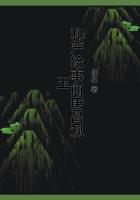The year following emancipation was one of religious excitement for large numbers of the blacks.Before 1865, the Negro church members were attached to white congregations or were organized into missions, with nearly always a white minister in charge and a black assistant.With the coming of ******* the races very soon separated in religious matters.For this there were two principal reasons: the Negro preachers could exercise more influence in independent churches; and new church organizations from the North were seeking Negro membership.Sometimes Negro members were urged to insist on the right "to sit together" with the whites.In a Richmond church a Negro from the street pushed his way to the communion altar and knelt.There was a noticeable pause; then General Robert E.Lee went forward and knelt beside the Negro; and the congregation followed his example.But this was a solitary instance.When the race issue was raised by either color, the church membership usually divided.There was much churchgoing by the Negroes, day and night, and church festivities and baptisms were common.The blacks preferred immersion and, wanted a new baptism each time they changed to a new church.Baptizings in ponds, creeks, or rivers were great occasions and were largely attended.
"Shouting" the candidates went into the water and "shouting" they came out.
One old woman came up screaming, "Freed from slavery! freed from sin! Bless God and General Grant!"In the effort to realize their new-found *******, the Negroes were heavily handicapped by their extreme poverty and their ignorance.The total value of free Negro property ran up into the millions in 1860, but the majority of the Negroes had nothing.There were a few educated Negroes in the South, and more in the North and in Canada, but the mass of the race was too densely ignorant to furnish its own leadership.The case, however, was not hopeless; the Negro was able to work and in large territories had little competition; wages were high, even though paid in shares of the crop; the cost of living was low; and land was cheap.Thousands seemed thirsty for an education and crowded the schools which were available.It was too much, however, to expect the Negro to take immediate advantage of his opportunities.What he wanted was a long holiday, a gun and a dog, and plenty of hunting and fishing.He must have Saturday at least for a trip to town or to a picnic or a circus; he did not wish to be a servant.When he had any money, swindlers reaped a harvest.They sold him worthless finery, cheap guns, preparations to bleach the skin or straighten the hair, and striped pegs which, when set up on the master's plantation, would entitle the purchaser to "40 acres and a mule."The attitude of the Negroes' employers not infrequently complicated the situation which they sought to better.The old masters were, as a rule, skeptical of the value of free Negro labor.Carl Schurz thought this attitude boded ill for the future: "A belief, conviction, or prejudice, or whatever you may call it," he said, "so widely spread and apparently deeply rooted as this, that the Negro will not work without physical compulsion, is certainly calculated to have a very serious influence upon the conduct of the people entertaining it.It naturally produced a desire to preserve slavery in its original form as much and as long as possible...or to introduce into the new system that element of physical compulsion which would make the Negro work." The Negro wished to be free to leave his job when he pleased, but, as Benjamin C.Truman stated in his report to President Johnson, a "result of the settled belief in the Negro's inferiority, and in the necessity that he should not be left to himself without a guardian, is that in some sections he is discouraged from leaving his old master.I have known of planters who considered it an offence against neighborhood courtesy for another to hire their old hands, and in two instances that were reported the disputants came to blows over the breach of etiquette." The new Freedmen's Bureau insisted upon written contracts, except for day laborers, and this undoubtedly kept many Negroes from working regularly, for they were suspicious of contracts.
Besides, the agitators and the Negro troops led them to hope for an eventual distribution of property.An Alabama planter thus described the situation in December 1865:
"They will not work for anything but wages, and few are able to pay wages.














